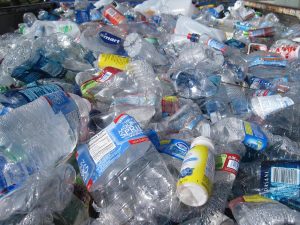Single-use plastic is having a resurgence during the pandemic
For those seeking silver linings in the ongoing coronavirus pandemic, the notable drop-off in air pollution has been a recurring bright spot. But while the skies might be clearing up (at least temporarily) while millions of people shelter in place, humans are poisoning the planet in other ways. Increased demand for medical supplies, households stocking up on tons of goods, and fears over COVID-19 spreading across different surfaces has single-use plastics on the rise — and as Wired reports, we’re running out of places to put it.
As more plastic waste pours in, the already overwhelmed recycling system is at risk of getting completely buried. Prior to coronavirus, many recycling companies were already struggling to deal with the more than 300 million tons of plastic discarded every year — nearly 50 percent of which is single-use. According to the Earth Institute at Columbia University, only about 10 percent of all discarded plastic products in the United States actually get recycled — a fact the plastic industry knew for years while touting recycling programs that would never be viable. Nearly 75 percent ends up in landfills, where it can sit and erode for hundreds of years, releasing carbon dioxide as it degrades and often making its way into waterways and oceans. It’s likely that as the country produces more plastic waste in this time of crisis, even more will be heading to landfills, as the already inundated recycling firms slow their operations. “Many recyclers, because of health and safety concerns, are also stopping the service,” Tom Szaky, CEO of recycling company TerraCycle, told Wired. “Recycling — that’s been in sort of a crash — is now getting even worse.”



